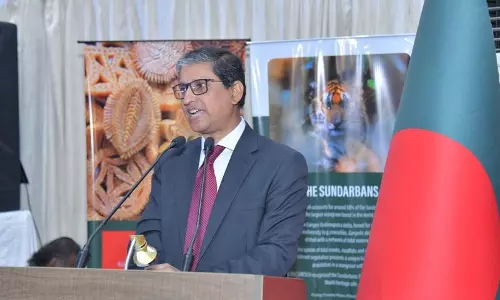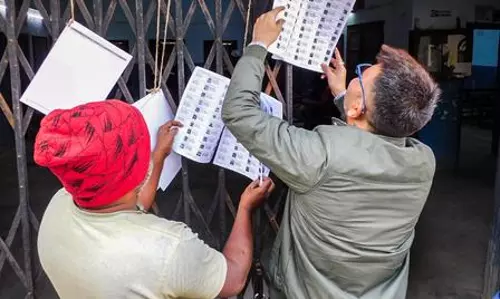
Nostalgia: weight of memories caught between yesterday and today
text_fieldsDoes too much yearning for the past deter you from enjoying the present and make you anxious about the future?
Each time I visit Kochi, I set foot in a different city. Unprecedented changes in the last two decades have made me a complete stranger to a city where I spent my career’s formative years at the outset of the millennium. I long for a simpler Kochi, where there were no sleek skyscrapers, humongous malls, or omnipresent metro tracks. And I know how wrong I am.
Travelling across the length and breadth of Kerala, it dawns on me that change is the defining word. The widening of National Highways has rendered most of the roads unrecognisable. It is next to impossible to travel without the guidance of online maps. Change itself has acquired a new pace, in tune with the new generation that lives life in the fast lane. What used to take a decade is now a matter of just two years.
As a copywriter, I lament the emergence of digital-focused advertising. To me, the natural high I get from seeing my ad printed in a newspaper or an outdoor ad catching my eye while passing through a quaint little town is incomparable. Writing for ‘likes’ gets the better of me, but I have to.
Yes, I suffer from an acute form of nostalgia. The dictionary definition of nostalgia is a sentimental longing or wistful affection for a period in the past. The word has its origins in Greek, where 'nostos' means homecoming, and 'algos' is a term for pain. Today, the word has acquired a broader meaning, going above and beyond ‘homesickness’. The popular Malayalam equivalent 'gruhathurathwam' does not do justice, while 'gathakaalasukhasmarana' comes closer.
Till the advent of the 20th century, nostalgia was not considered a positive feeling. It was a psychological disorder, which even claimed lives. Once it spread across Europe like a pandemic, originating in Switzerland. Today, as long as it doesn’t fuel depression, nostalgia is not counted as a dangerous emotion.
Nostalgia is gaining momentum as a powerful marketing tactic. Recently in Kerala, there has been a spurt in releasing digitally remastered versions of old superhit movies. I, for one, booked the FDFS for 'Spadikam' and didn’t regret it. For someone who rewatches movies from childhood on YouTube time and again, it was a real treat. Nostalgia plays a pivotal role in election campaigns as well. Donald Trump’s 2016 election campaign’s plank was ‘Make America Great Again’, and it resonated with the voters. When Nokia relaunched its classic 3310 model feature phone, it was sold like hotcakes.
Nostalgia has contributed to the birth of some of the finest works in Malayalam literature. S.K. Pottekkad’s 'Oru Deshathinte Katha' makes one yearn for the Kozhikode of yore. M.T. Vasudevan Nair’s stories are replete with nostalgia for 'Kudalloor', his hometown. For a nostalgia junkie, immersing oneself in a story by the doyens of Malayalam literature is like embarking on a journey in a time-travel machine.
Like every emotion, an overdose of nostalgia has its cons too. Nostalgia is considered a deterrent to development. When the roads were widened across Kerala, it gnawed into many cherished memories. Umpteen homes were razed to pave the way for the widening. Seeing the debris, I used to wonder whether the monetary compensation could really vindicate the loss. On the other hand, if nostalgia is what drives the majority, Kerala would still be stuck in the 1980s.
There are ways to put nostalgia to better use. If the present is painful, it is OK to romanticise the jolly good times in the past. You can even find hope by reflecting on the past. It helps you increase your self-esteem, elevates your mood, and makes you happier and more resilient.
Nostalgia is very subjective. A millennial’s nostalgia is significantly different from that of Gen Z. It is very likely that you have built your nostalgia on the grave of somebody else’s endearing past. While a moderate amount of nostalgia is good, never let it consume you, never let it deter you from enjoying the present moments. After all, even today’s seemingly mundane experiences might become tomorrow’s cherished nostalgia.
The author is an advertising copywriter who often writes his thoughts for various publications























